 This author interview features writing advice from Betty Jackson. For 40 years, Betty Jackson taught language arts to middle and high school students. She began seriously writing after her retirement in 2012. Since then, Betty has authored 24 books. If you’d like to learn more about the author, visit her website.
This author interview features writing advice from Betty Jackson. For 40 years, Betty Jackson taught language arts to middle and high school students. She began seriously writing after her retirement in 2012. Since then, Betty has authored 24 books. If you’d like to learn more about the author, visit her website.
What is your first memory of writing?
Jackson: My mom was a writer. She published a couple of books, and I can’t remember when I wasn’t writing stories and writing just little things. I’ve never been a journalist. So I don’t write down everything that I do, but my grandmother did. When I was a teenager, I became interested in reading her journals. My grandmother only had a sixth-grade education, but she had a way with words. I absolutely loved everything that she wrote. So I’ve been a writer for a long time.
What inspires you to write today?
Jackson: Reading, lots of reading. I’ve read some books, and I say to myself, I could have done this. Or, if I were going to tell this story, this is what I would do. Also, I’ve always been interested in language. I’ve always had many stories to tell. Writing is fun for me, and when it doesn’t become fun, I’ll stop. had many stories to tell. Writing is fun for me and when it doesn’t become fun, I’ll stop.
In your opinion, what distinguishes you from other authors?
Jackson: I’m not as traditional as some writers. They tend to have a lot of conflict and innuendos in their books. I like to tell happy stories. Most of the time, writing contests are judge off conflict development. I don’t like to write that way. I write from a Christian perspective, knowing that God is in charge of people’s lives. So, I have a specific market in mind.
With that, do you write in one specific genre?
Jackson: No, I’m very eclectic. I have published nonfiction, fiction, memoir, novels, novel series, devotional books, and poetry.
What do you read for leisure?
Jackson: I’m a member of a book club with the group library. So I keep current with those things. Most of those are mysteries, which to some degree, I enjoy. Right now, I am reading The Hunger Games series. During the COVID-19 pandemic, I’ve read Karen Kingsbury’s books. I’ll read pretty much anything; I enjoy reading. If I like the first 50 pages, I read the whole book. If I don’t like the first 50 pages, I give myself permission to abandon that ship and read something else.
How do you develop your characters and setting?
Jackson: The perspective of a mother and a grandmother comes into play; I develop my characters from people I know. For example, I wrote a book, a memoir, and compared family members to different kinds of flowers. So, I think you have to write from a perspective of what you know. My favorite quote by Flannery O’Connor reads, “I write to discover what I know.” I think that’s very important for every writer. You can research and write about places you’ve never been to. But, you have to know an area to make sure that your story lives.
What are the main differences between traditional publishing and self-publishing?
Jackson: The first book that I published was with Westfield Press, now Vanity Press. You actually pay to get your book published. I’m glad I did that because I learned a lot about the whole process. Traditional publishing is extremely competitive. There are millions of books that are sent to agents and publishers. Publishers don’t even accept them without an agent. It can take years to traditionally publish your book. I started to write at 70 years old, so I didn’t have years to waste waiting. I didn’t want to go the traditional publishing route. Not because my work isn’t good enough, but because agents are looking for specific marketable content. Also, you must have a following before they even look at your work.
Regarding self-publishing, it became apparent that online platforms like CreateSpace allow you to do all the work that the traditional publisher does. You present the completed project precisely the way you want it to look, and within a week, you have your book. Like I mentioned, with self-publishing, there is a huge difference with time. Also, there is a difference in expenses. I didn’t have to pay an agent. You have complete control of your story. That’s not the case if you send it to a publisher. They might say, “the pace is too slow in the first three chapters, rewrite this, take out this character. With traditional publishing, you are revising your whole book according to what someone else wants. You don’t have control of what publishers put on the cover and what people they market your work to.
How does a writer know when they’re ready to share their work with the world?
Jackson: I usually have several people read my work before publishing. You’ll overlook errors because you wrote it. You need to have proofreaders. You need to have editors. You need to have people who will tell you whether your work is good or bad. For instance, this morning, I met with two authors., The three of us meet once a month to read each other’s work. We proofread and share comments about each other’s work; we are incredibly authentic about it. Never publish your work without allowing someone else to look at it first.
How can writers improve their writing skills?
Jackson: I have two sources for you. First is Kindle Direct Publishing. The site features a wide variety of writer’s tips. The second is NaNoWriMo. This site shows all kinds of things about how to write, so it’s a great resource. Also, anyone who is a new writer should read a variety of things and discover other people’s voices. This helps you find yours. I think that’s really important.
What is the best piece of advice you could give to a new author?
Jackson: 1) Write every day. 2) Write about what’s on your mind. 3) Don’t be critical about what you write. 4) If you’re interested in genealogy, learn about your grandmother and write a book about her. That’s how I won First Prize in Reminisce/Reader’s Digest LifeRich Memoir Contest in 2014. That all came from just thinking about my grandma.




